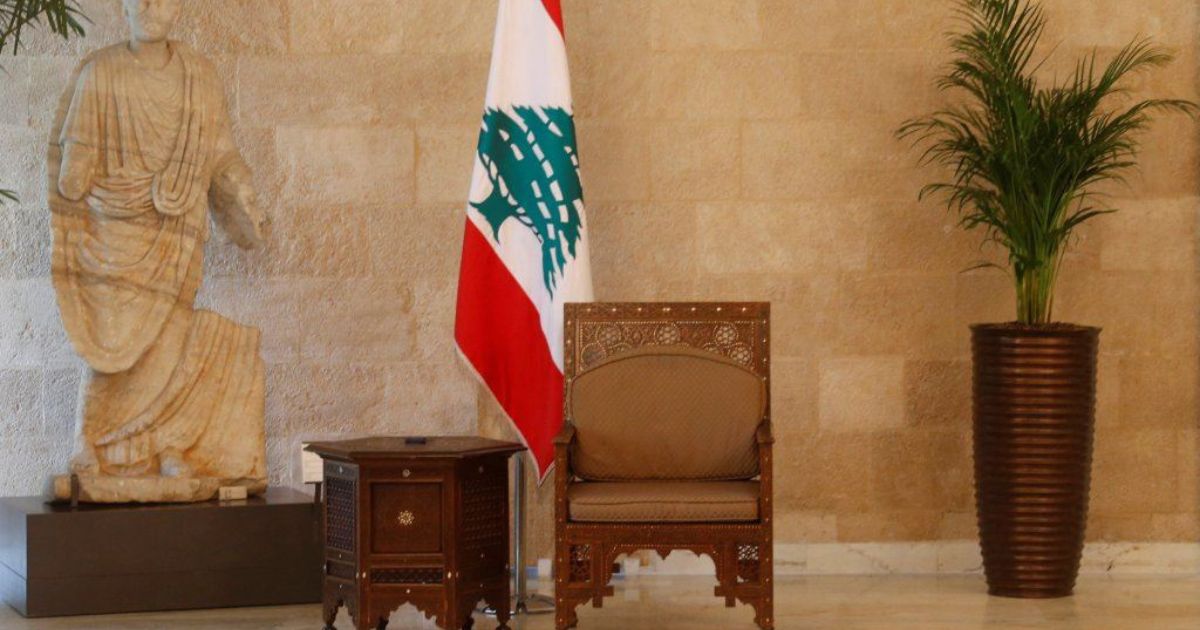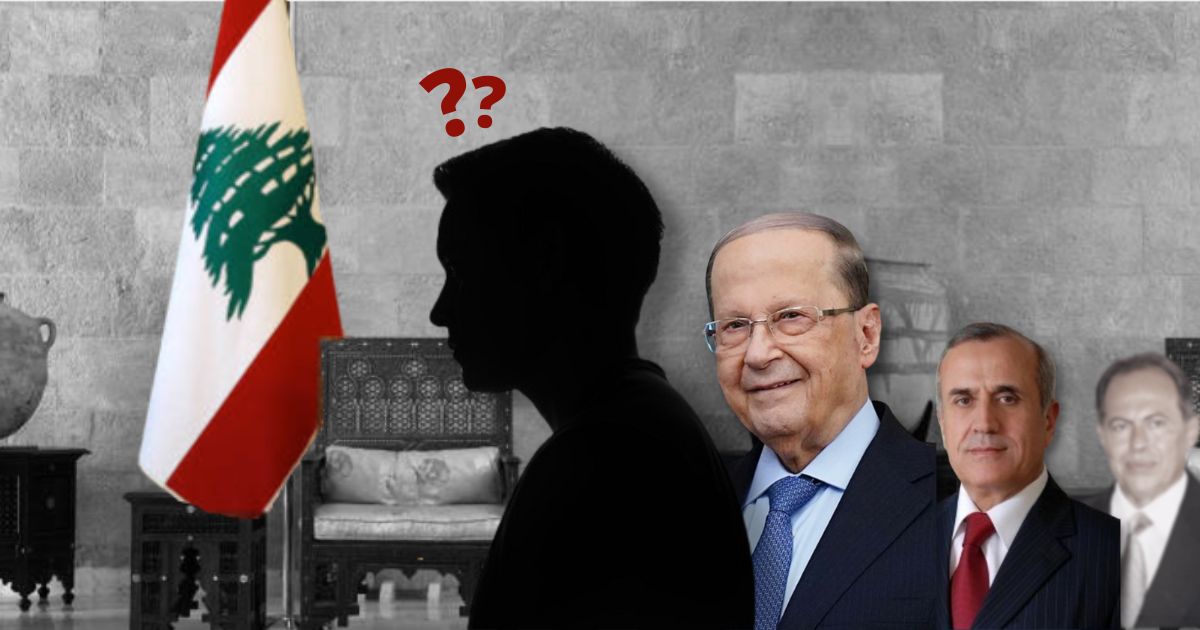Unless there is a sudden and major development in internal and external political positions before October 31st, Lebanon will have a presidential vacancy for the 4th time in its modern history.
As Lebanon has entered the constitutional period to elect a president, it’s important to go through the process of electing a president as well as previous presidential vacancies in Lebanon in order to build a vision of what to expect during the next months.
The President Of The Lebanese Republic
As amended by the Constitutional Law of October 17, 1927, May 8, 1929, January 21, 1947, and September 21, 1990:
The President of the Republic is the head of the state and the symbol of the nation’s unity. He shall safeguard the constitution and Lebanon’s independence, unity, and territorial integrity.

The President shall preside over the Supreme Defense Council and be the Commander-in-Chief of the Armed Forces, which fall under the authority of the Council of Ministers.
The President of the Republic shall be elected by secret ballot and by a two-thirds majority of the Chamber of Deputies. After a first ballot, an absolute majority shall be sufficient.
The President’s term is 6 years. He may not be re-elected until 6 years after the expiration of his last mandate.
No one may be elected to the Presidency of the Republic unless he fulfills the conditions of eligibility for the Chamber of Deputies.
It is also not possible to elect judges, Grade One civil servants, or their equivalents in all public institutions to the Presidency during their term or office or within 2 years following the date of their resignation and their effective cessation of service, or following retirement.
How Is The President Elected?
As amended by the Constitutional Law of October 17, 1927, May 22, 1948, and April 24, 1976:
One month at least and 2 months at most before the expiration of the term of office of the President of the Republic, the Chamber shall be convened by its president to elect the new President of the Republic. However, should it not be convened for this purpose, the Chamber shall meet automatically on the 10th day preceding the expiration of the President’s term of office.

Should the Presidency become vacant through the death or resignation of the President or for any other cause, the Chamber shall meet immediately, and by virtue of the law, to elect a successor.
If either Chamber happens to be dissolved at the time the vacancy occurs, the electoral bodies shall be convened without delay and, as soon as the elections have taken place, the Chamber meets by virtue of the law.
The Chamber meeting to elect the President of the Republic shall be considered an electoral body and not a legislative assembly. It must proceed immediately, without discussion of any other act, to elect the Head of the State.
Therefore, and according to the Lebanese Constitution, there is nothing called “Presidential Vacancy”. The Chamber or the Cabinet shall immediately meet and elect the Head of the State.
Historic Presidential Vacancies In Lebanon
The most recent, and the most lengthy case of a Presidential vacancy were the 29 months following President Michel Suleiman’s end-of-term in May 2014 and President Michel Aoun’s election as the 13th President in October 2016.


This period “coincided” with the war in neighboring Syria, which spilled over into Lebanese territory most notably in the clashes of Arsal in August 2014, and which the country had to face without a Head of State.

During this vacancy, the then-cabinet presided over by prime minister Tammam Salam assumed the responsibilities of the President, for a period of 890 days.

Preceding that, and prior to President Michel Suleiman’s election in May 2008 as the 12th President, the chair was vacant. but this time for 189 days. The cabinet presided then by PM Fouad Sanioura assumed the responsibilities of the president.
This vacancy was caused by a political deadlock that was resolved on 21 May 2008 in what became known as the Doha Agreement. Here, international mediation was required to solve a constitutional crisis in internal affairs caused by political deadlock amongst incompetent politicians.

The Doha Agreement was reached by rival Lebanese parties on 21 May 2008 in Doha, Qatar to end an 18-month-long political deadlock.
Emir Sheikh Hamad bin Khalifa Al Thani, the ruling Emir of Qatar from 1995 to 2013, invited all Lebanese political parties to Qatar’s capital, Doha, to seek an end to the conflict and avoid possible all-out civil war.



There are even more instances of crises caused by the ineffectuality of Parliament, such as during the Civil War when, in 1988, at the end of his tenure, President Amin Gemayel appointed Michel Aoun to be Prime Minister and interim President, and at the same time, Prime Minister Salim Al-Hoss refused to stand down.
This caused Lebanon to have two rival governments for almost two years.
Results Of A Presidential Vacancy
The presidential vacancy is synonymous with a paralyzed government because the government in this case only has limited executive powers and cannot execute decisive action.
If we are to speak plainly, one would then say that a Maronite (presidency) vacancy would also mean a Sunni (prime ministry) vacancy. This would be a paralyzed State and a perpetually paralyzed State is not worth the ink on which is written its Constitution.

Furthermore, if Israel decided to launch an illicit war on Lebanon’s southern borders amid all the tension in the borders negotiations file, what can the Lebanese state do without a President and a functioning government?
Not even Parliament can function in the event of a vacant Presidency. The constitution clearly states that, in the event of a vacancy, the Parliament has no right to legislate any laws, not even to ratify the budget draft.
Lebanon still remembers the state of total paralysis caused by the historic two-year vacancy preceding President Michel Aoun’s election in 2016: State finances in disarray, international investments at an all-time low, and trust in the Lebanese State amongst the general public greatly eroded.

The Thawra (revolution) of October 2019, marked by great economic hardships, was caused among other things by the vacancy leading up to and including the 2016 Presidential elections.
Oftentimes when attempting to illustrate the relation between the President and the State, it is described as being the “head of the pyramid”, yet there is a more fitting term: “capstone of the arch”.
A pyramid is still standing without its head, but an arch without a capstone falls and is reduced to rubble.
Predicted Scenarios For The Upcoming Period
Internally, political analysts talk about 4 forces that affect the presidential election: the Maronite Church represented by Patriarch Al-Rahi, the Free Patriotic Movement (FPM), the Lebanese Forces (LF), and Hezbollah which has the final say in having a veto in Parliament.

Externally, France is interested in the presidential election without being able to have a great influence, and Washington is influential but not interested in the degree of involvement so far.
In the Arab Gulf, Saudi Arabia does not show interest and is content with observing the scene, while Iran pays attention through Hezbollah.
On the other hand, for the first time since 1989, the external factor is not a likely factor in determining the identity of the president. The regional and international power will be forced to take into account the balances inside Lebanon, meaning that the Lebanese element is ahead of everything else this time.
The void will not be as long as the year 2014, nor short. There are international and regional developments, if they take a positive direction, it will be reflected in Lebanon, and the country will win a president and a government.
But the longer the void lasts, the more the question of the formula takes precedence over the question of the presidency.
In the meantime, everyone will continue to keep their eyes on the borders negotiations file and go with its flow.
And ultimately, await the Divine willpower.
















